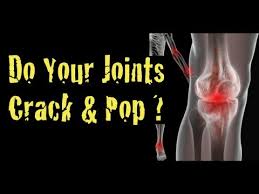
Breaking News
 2 Hours of Retro Sci-Fi Christmas Songs | Atomic-Age Christmas at a Snowy Ski Resort
2 Hours of Retro Sci-Fi Christmas Songs | Atomic-Age Christmas at a Snowy Ski Resort
 Alternative Ways to Buy Farmland
Alternative Ways to Buy Farmland
 LED lights are DEVASTATING our bodies, here's why | Redacted w Clayton Morris
LED lights are DEVASTATING our bodies, here's why | Redacted w Clayton Morris
Top Tech News
 Travel gadget promises to dry and iron your clothes – totally hands-free
Travel gadget promises to dry and iron your clothes – totally hands-free
 Perfect Aircrete, Kitchen Ingredients.
Perfect Aircrete, Kitchen Ingredients.
 Futuristic pixel-raising display lets you feel what's onscreen
Futuristic pixel-raising display lets you feel what's onscreen
 Cutting-Edge Facility Generates Pure Water and Hydrogen Fuel from Seawater for Mere Pennies
Cutting-Edge Facility Generates Pure Water and Hydrogen Fuel from Seawater for Mere Pennies
 This tiny dev board is packed with features for ambitious makers
This tiny dev board is packed with features for ambitious makers
 Scientists Discover Gel to Regrow Tooth Enamel
Scientists Discover Gel to Regrow Tooth Enamel
 Vitamin C and Dandelion Root Killing Cancer Cells -- as Former CDC Director Calls for COVID-19...
Vitamin C and Dandelion Root Killing Cancer Cells -- as Former CDC Director Calls for COVID-19...
 Galactic Brain: US firm plans space-based data centers, power grid to challenge China
Galactic Brain: US firm plans space-based data centers, power grid to challenge China
 A microbial cleanup for glyphosate just earned a patent. Here's why that matters
A microbial cleanup for glyphosate just earned a patent. Here's why that matters
 Japan Breaks Internet Speed Record with 5 Million Times Faster Data Transfer
Japan Breaks Internet Speed Record with 5 Million Times Faster Data Transfer
Is it Normal for Joints to Pop, Creak and Crack?

If the popping or cracking sounds of your joints have ever given you cause for worry, you'll be relieved to know that it is normal for your joints to occasionally "talk to you." It is common to hear occasional joint sounds when you move in everyday ways, such as bending over to retrieve a dropped item or walking up or down stairs. Dr. William Shiel, chief editor and co-founder of the medical-information website MedicineNet.com, says:1
"The symptom of joint cracking is described differently by different people, while nevertheless representing the same condition. Various descriptions for the same process include 'popping,' 'exploding,' 'noise,' 'snapping' and 'creaking' of a joint."
The most common and less serious joint popping that occurs most often is caused by knuckle cracking or a certain manner of bending or twisting the body to relieve pressure.
One cause for the sounds is the reality that your soft tissues, such as ligaments and tendons, frequently contact your bones and other tissues as you move. Pockets of nitrogen gas within your joint fluid, which help with joint lubrication and nutrition, can also be responsible for some of the sounds.
To date there is insufficient evidence linking joint sounds and arthritis. Furthermore, cracking your joints does not cause them to swell up or become arthritic. That said, unless you are experiencing pain and swelling, rest assured that most joint sounds generally are normal, not harmful.

 $100 SILVER CONFIRMED?
$100 SILVER CONFIRMED?

